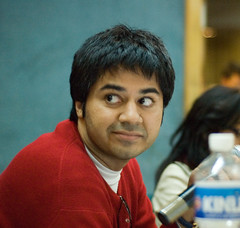 Image by Jace via Flickr
Image by Jace via FlickrBy Andie Noonan
It’s almost a year since a Delhi court ruled to repeal section 377 of India’s 149-year-old penal code which made homosexuality a punishable crime.
Parmesh Shahani, Indian magazine editor and author of Gay Bombay: Globalization, Love and (Be)Longing in Contemporary India, told Sydney Star Observer, on a recent visit to Australia, his country was still in a “transition” phase.
“The change that has taken place in India hasn’t just taken place legally, it’s taken place tremendously within the social and cultural realm,” he said.
“Not just activists, regular people, company managers, workers in factories, housewives, mums dads, these are all people who read the newspapers and read about what’s happening in the rest of the world and it certainly impacts on the way they view homosexuality in India.”
Shahani — who published his book in 2008 — said although general views on homosexuality have shifted in the last few decades the court decision was a critical step.
“I think the past few years have been simply phenomenal because when the book came out, homosexuality was still criminal,” he said.
“What was amazing about the judgment was not just the fact that it decriminalised [homosexuality], it was also very strongly worded in a way that gave the right for homosexuals to be considered as non-criminals in their own country. It placed that whole fight within the ambit of human rights, citizenship and decency.”
Shahani said change has also moved in mysterious ways. One of the biggest Bollywood films of 2008 — Dostana — revolved around two male characters who pretend to be gay to pursue the girl of their dreams.
“They weren’t really gay so you can’t call it a gay portrayal, but for the gay community it was amazing because suddenly, even though they were pretending, there was this representation within the mainstream Bollywood platform,” he said.
“They found it tremendously empowering. Loads of people used the film to come out to their parents.”
Since the Delhi court ruling, religious groups have moved to have the decision overturned.
“Whether it’s the church, the Hindu right-wing, whether it’s fundamentalists or Islamic groups — they’re all gathering under the platform that these are not Indian values,” Shahani said.
“It’s become a debate over values, not about sexuality and human rights, and it will become a debate of who belongs to this idea of Indianness.
“One has to be excited about everything that’s happened but also very cautiously optimistic.”








 Join our page
Join our page


0 comments:
Post a Comment